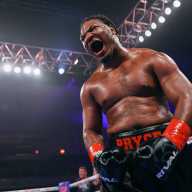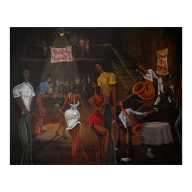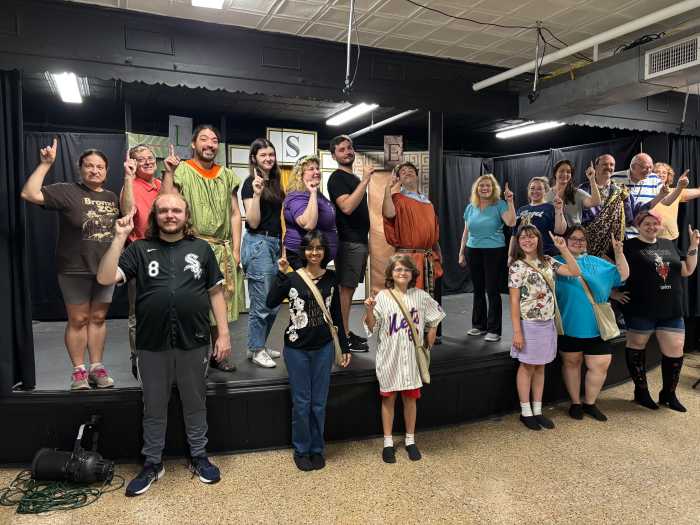Connecticut Sen. Chris Murphy’s filibuster this week was a surprisingly stirring call to action on gun control — even if that action is a vote doomed to fail.
In the wake of the mass shooting that left 49 dead at an Orlando gay club, it’s likely the Senate will vote on gun control amendments, including one that would block individuals on the terrorist watch list from buying guns, and another that would expand background checks.
These are worthy goals, and supported by most Americans and even gunowners, polls indicate. This spirit of compromise means getting something, anything, done — the kind of action that even conservative talking-head Bill O’Reilly is willing to support. Still, the proposals face a steep road to becoming law.
And while the spirit of compromise is worthy, it ignores the fact that measures mostly addressing mass shootings are only part of the fight against gun violence, which in cities like New York means focusing on handguns, too.
Imagine a world with more guns
With his ear finely tuned to the political winds, poll-dropping presumptive Republican nominee Donald Trump switched tactics Wednesday, tweeting that he would meet with the NRA to discuss the reasonable gun control measures mentioned above.
Yet he also asserted that “if some of those great people that were in that club that night had guns strapped to their waist or strapped to their ankle,” things might have been different.
This good-guy-with-gun argument promoting handgun proliferation should be mind-boggling to any American, but in particular to New Yorkers.
Imagine the scenario: 15 partygoers in a Lower East Side dance bar hear gunshots and pull out their hitherto concealed weapons, firing away.
At each other; at the noises they’re hearing; perhaps even at a gunman, but certainly with collateral damage. Imagine those partygoers have been drinking for a few hours; imagine it’s dark inside; imagine that they have limited weapons training.
But we don’t have to imagine.
Consider the 2012 incident in which two NYPD officers — not drunk, not vision impaired, not un-trained — responded to a shooting outside the Empire State Building. Police confronted a man who had just shot and killed a former co-worker.
When the man raised his weapon, the officers fired 16 times. They killed the man, but also wounded nine pedestrians — six from shrapnel, but three from direct gunshot wounds. Trained officers of the law.
In January and March of this year, officers responding to a fight and in the middle of a drug investigation ended up wounding colleagues with friendly fire.
Why would we want more guns on the street, held by people with less training?
There is no hunting to be done in New York City, other than for rats or apartment deals. There are shooting ranges within and on its outskirts for sport, with guns to rent. Owning a gun to take with you, bought after careful background checks, is reasonable. But do you need a gun in NYC for protection?
Some argue that carrying a gun prevents crime, but even pro-gun accounts acknowledge that defensive use of guns are hard to count and can be exaggerated (up or down).
Regardless, New York is at its safest in the modern era at a moment when it also has its strictest gun laws and pays serious attention to removing guns.
Should we sacrifice safety to an unproven theory of protection that has everyone carrying a gun — where any subway tussle, street argument, boardroom run-in, comes with the possibility of deadly force? In which case we’d all be soldiers and police officers on constant deployment, patrolling our own homes.
Turning off the faucet
New York City has taken steps to get rid of illegal guns inside its borders, with help from Albany, whose Safe Act established universal background checks and strict penalties for those found with illegal guns.
Compare NYC’s situation with Chicago, where different patterns of (perhaps more entrenched) violence certainly aren’t helped by lax gun laws from their own capital. Paper-thin boundaries along the so-called Indiana Pipeline mean that the vast majority of illegal guns in Chicago are funneled in from out of state, where gun laws are even looser.
Guns have to go farther to get to New York, along the Iron Pipeline from states like Georgia and Florida, a route that NYPD Commissioner William Bratton has called a “spigot” and a source of much of NYC’s continued gun problems.
Shutting the spigot takes national consensus, which means we’re back to compromise measures in a Congress having trouble keeping guns out of the hands of those on a terror watch list. That would be a good start, but not an end.
This is amExpress, the conversation starter for New Yorkers. Subscribe at amny.com/amexpress.



























